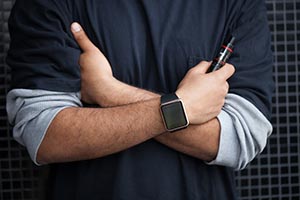Fitbit Data Leads to Husband Charged with Wife's Murder
Technology has advanced the ease and quality of life immeasurably. Smart phones are handheld computers that can surf the internet; deliver emails, texts and phone calls; take videos and pictures; make dinner reservations and track your every movement through various apps. Our cars can almost drive themselves with lane change warnings; infrared cameras; heads-up displays, cruise control with radar; event data recorders that record speed, braking and seatbelt use; and GPS tracking in case the car is stolen. Home security cameras, Amazon Echo, smart TV, smart appliances and the like can all be controlled remotely through the internet. A variety of devices that are small and comfortable enough to wear, such as Fitbits, iWatches and the like can track our movements, heart rates, calories burned, number of steps and location.
As helpful as these devices are to their users, law enforcement too has come to discover that these devices can provide valuable, irrefutable evidence in criminal investigations. Just recently, a Connecticut husband was charged with his wife's murder after his story about his wife's whereabouts was refuted by information from her Fitbit that revealed not only her location but when and far she was moving (or not) at specific times.
Earlier this year, Arkansas authorities used recordings from an Amazon Echo in a murder case. And last year, investigators in Ohio used evidence from a man's pacemaker to charge him in an arson case.
Until recently, E-Z Pass records, cell site pings, GPS in our cars, social media postings and red light and other security cameras were all that investigators had available to piece together a person's movements with varying degrees of accuracy. Now, with these new wearable devices, law enforcement has gained valuable new tools to track a person's movements.
With rapidly developing technology, and law enforcement's ability to gather and use the information in criminal cases, courts are increasingly called upon to determine the legitimate collection and preservation methods permitted. Whether the collection of the data requires a search warrant, communications data warrant or grand jury subpoena is being fought in courts throughout the country.
Contact NJ & NY Criminal Defense Attorneys
Protect your rights.
Our offices are located in Westfield, New Jersey and Manhattan. To contact us to discuss your case, call 908.301.9001 for our NJ office and 212.755.3300 for our NYC office, or email us at rstahl@stahlesq.com. Or Contact us online.




Leave A Comment